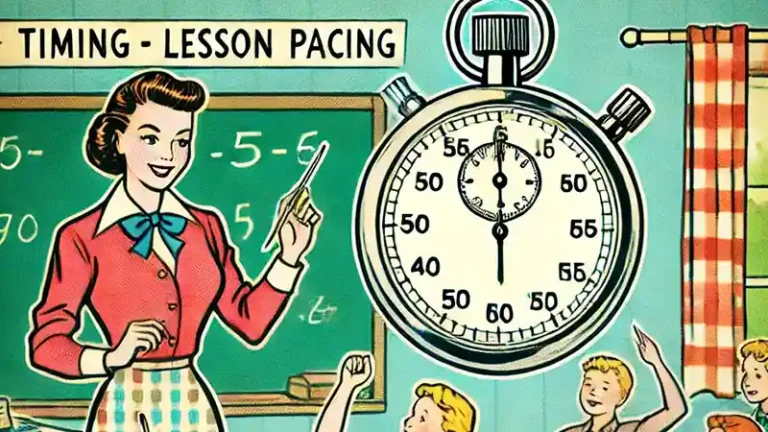Unyielding Determination: Learning from Marie Curie’s Life
Today, we will explore Marie Curie’s life, a trailblazer in science whose journey embodies the essence of perseverance, passion, and innovation. Curie’s story is about science and overcoming adversity, breaking barriers, and contributing to the greater good. Through her life, we will learn valuable lessons about resilience, determination, and the power of pursuing one’s passion against all odds.
Learning Goals
- I will be able to identify the challenges Marie Curie faced and how she overcame them.
- I will be able to reflect on my own challenges and aspirations, drawing inspiration from Marie Curie’s resilience and determination.
- I will be able to recognize the value of creativity and innovation in solving real-world problems, inspired by Curie’s invention of mobile X-ray units.
Materials
A Life of Science: The Marie Curie Story
Let’s dive into the story of Marie Curie, a scientist whose journey is nothing short of inspiring and truly extraordinary. Born in Warsaw, Poland, in 1867, Curie’s early life set the stage for a tale of perseverance and groundbreaking achievements.
Despite the significant challenges of being a woman in a field overwhelmingly dominated by men, Marie Curie never allowed these obstacles to deter her. Her unwavering passion for science pushed her to pursue her dreams against all odds.
In pursuit of her dreams, Marie Curie boldly moved to Paris, where she enrolled in physics and mathematics courses at the Sorbonne, renowned as one of the world’s premier universities of that era. It was a significant step, reflecting her determination to create a place for herself in the scientific community.
It was in this vibrant academic environment that Marie met Pierre Curie, a scientist who shared her curiosity and zest for discovery. The two quickly fell in love and soon married. Together, Marie and Pierre Curie embarked on an incredible journey of exploration and innovation, laying the groundwork for discoveries that would forever alter the course of science.
Marie Curie’s legacy is most famously linked to her discovery of two elements: polonium and radium. These groundbreaking discoveries were pivotal, opening new doors in the understanding of atomic physics and setting the stage for future scientific breakthroughs. What makes her achievements even more remarkable is the context in which they were made.
Marie and Pierre Curie’s quest for knowledge was conducted in a makeshift laboratory that was far from ideal. It was poorly equipped and suffered from a lack of funding, far from the sophisticated labs we might imagine for such monumental work. Yet, it was in this humble setting that the Curies, fueled by an unyielding determination and a profound curiosity about the natural world, pressed on with their experiments. Their ability to achieve so much with so little is a testament to their resilience and passion for science.
Marie Curie’s contributions to the world went far beyond her initial discoveries. She also played a pivotal role in developing X-ray technology, a field that would revolutionize medical diagnostics. During World War I, she recognized the urgent need for medical care on the battlefield and took it upon herself to address this challenge. Marie Curie set up mobile X-ray units, known as “Little Curies,” which were used to assist doctors in treating wounded soldiers directly at the front lines. These portable units allowed for quick and accurate diagnosis of injuries, significantly improving the chances of recovery for countless soldiers.
Her innovative approach to applying scientific discoveries for the betterment of humanity has saved innumerable lives and continues to influence the fields of medicine and science. Marie Curie’s enduring legacy is a reminder of how curiosity, combined with determination, can lead to advancements that benefit people all around the world for generations to come.
Marie Curie’s dedication to science and her groundbreaking achievements earned her two Nobel Prizes: in Physics (1903) and in Chemistry (1911). She was the first woman to win a Nobel Prize and remains the only person to have won Nobel Prizes in two different scientific fields.
What’s truly inspiring about Marie Curie’s story is her resilience, determination, and passion for science. She faced numerous obstacles, including financial difficulties, health problems due to exposure to radioactive materials, and skepticism from her male peers. Yet, she never gave up on her quest for knowledge.
Reflection and Questions
Answer at least three questions below:
- How does Marie Curie’s journey from Warsaw to Paris to pursue her education inspire you to overcome obstacles in your own pursuit of learning and growth?
- Marie Curie faced significant challenges as a woman in science. Can you think of a time when you felt underestimated or faced obstacles because of who you are? How did you, or how can you, overcome these challenges?
- Marie and Pierre Curie’s partnership was not only romantic but also a collaborative scientific venture. How does this story of teamwork and shared passion inspire you to collaborate with others to achieve your goals?
- Considering Marie Curie’s determination to conduct experiments in a makeshift laboratory, how can you make the best out of limited resources or situations in your own life to reach your goals?
- Marie Curie’s invention of mobile X-ray units during World War I significantly improved medical care for soldiers. How does her innovative spirit inspire you to think creatively about solving problems in your community or the world?
- Reflecting on Marie Curie’s life-saving contributions to medicine and science, how does this influence your thoughts on the importance of pursuing your passions, not just for personal achievement, but for the greater good?
- Despite the risks and health problems associated with her research, Marie Curie remained dedicated to her work. How does her commitment to science despite personal risk inspire you to pursue your passions with courage?
- Marie Curie was the first woman to win a Nobel Prize and remains the only person to have won in two different scientific fields. How does her groundbreaking success inspire you to set and achieve ambitious goals?
- Marie Curie faced skepticism and resistance from her male peers but never let it deter her quest for knowledge. Have you ever been discouraged by others’ doubts? How can Marie Curie’s story motivate you to prove skeptics wrong?
- Reflecting on your own experiences and aspirations, how can Marie Curie’s resilience, determination, and passion for science serve as a model for navigating your own challenges and pursuing your dreams?





